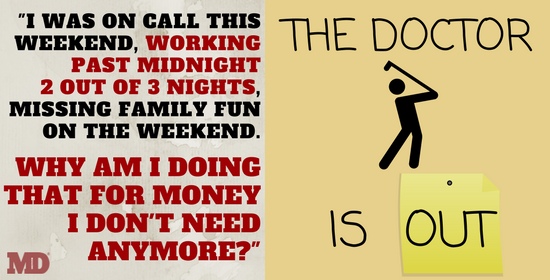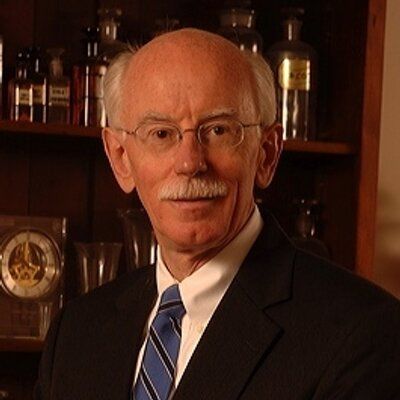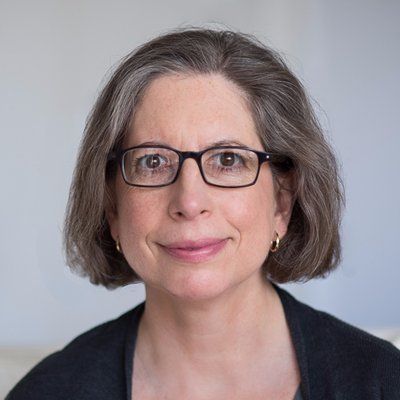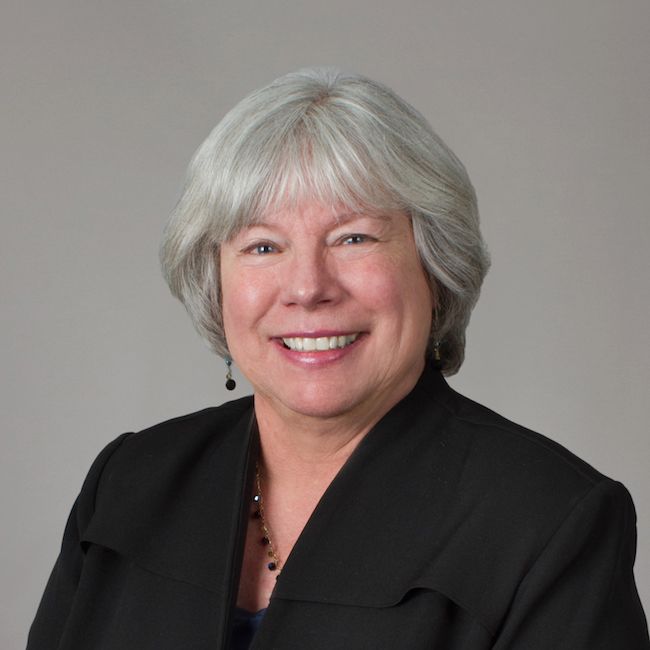Article
"I Think It's Time": Physician Retirement the Way You Want It
Author(s):
Many physicians find their motivation waning as the pressures of life continue to build. How can doctors reach retirement on their own terms?

Stephen Schimpff sat shoulder to shoulder with his wife, cruising comfortably eastward in a California-bound airliner. A carpet of pink evening clouds clung to the Pacific Ocean 30,000 feet below, casting a warm glow that complemented the couple’s shared feeling of contentment.

The Schimpffs were returning from a 2-week trip to Japan to visit their first grandchild. It was a joyous occasion. They might have stayed longer, but Stephen Schimpff, MD, FACP, then-CEO of the University of Maryland Medical Center, couldn’t shake the feeling that every moment spent away from work would have to be paid back 2-fold.
That nagging feeling is common among many working Americans and increasingly true among American doctors. After a half century as a physician, an educator, a cancer researcher, and a hospital leader, Schimpff had had just about enough.
He leaned over to his wife, smiled, and spoke softly so only she could hear. “I’m tired,” he said. “I think it’s time.”
Those few words carried more weight than their brevity implied. Schimpff was making one of the biggest decisions of his life: the decision to retire.
Decisions, Decisions
The realization that the sun was setting on his career came to Schimpff in a moment of clarity and cool introspection. He’s the kind of doctor who always had the right stuff, like the flexibility to think on his feet and, perhaps most important, a tireless dedication to helping others. But he knew that the health care system is defined by its challenges—more than anyone can hope to tackle in a lifetime.
For others, practicing medicine doesn’t come as naturally and easy. Many physicians find their motivation waning as the pressures of life—increasing workload, growing responsibilities on and off the job, personal and familial needs, health concerns, and more—continue to build.
So, how does a physician know when the time is right to hang up the coat and stethoscope once and for all?
Burning Out
For many well-to-do docs, retirement is a long, slow process that starts with cutting back on hours and patients. But for some, when combined with the costs of malpractice insurance and office overhead, reduced hours don’t allow for an essential piece of the retirement puzzle—financial stability.
Chasing profits is easy enough for some doctors, but pay can vary widely by specialty area, as well as willingness to dedicate time to cultivating streams of income in addition to annual salary. For primary care doctors, getting the most bang for the buck often means working long hours and hopping from one patient to the next as quickly as possible. Often, the result is a nagging tiredness and the feeling of never being caught up, together known as burnout, which has come to define the current generation of doctors.
Recent surveys estimate that more than half of primary care physicians have measurable signs of burnout, and about 41% have seriously considered quitting medicine because of stress. The problem shows no signs of relenting. In fact, evidence suggests that it’s spreading faster each year.
The Early Retiree

Some physicians are planning their career trajectories so they avoid burnout and its propensity for increasing the odds of premature or delayed retirement. But how often do you hear of a physician who has achieved financial independence after just a decade of practicing medicine?
Physician on FIRE (PoF), author of the blog of the same name, uses a pen name that contains an acronym for the theme of most of his musings—Financial Independence, Retire Early. PoF is not your average anesthesiologist and family man. He works as a .6 FTE physician (by choice), has an array of hobbies, and attained financial independence at age 39. Careful planning has allowed him to afford to retire comfortably whenever he chooses, after just a 9-year career.
But PoF continues to practice medicine, with a catch—it’s on his own terms.
“I was on call this weekend, working past midnight 2 out of 3 nights, missing family fun on the weekend,” PoF said in an interview with MD Magazine. “Why am I doing that for money I don’t need anymore? It’s a question I’ve been asking myself.”
His current work schedule allows PoF to travel for 3 to 4 weeks at a time with his wife and 2 sons. After that shift this past weekend, he’s now off for 6 weeks and doesn’t work again until March. In November 2017, the family spent 3 weeks in Mexico, complete with a Spanish language immersion experience for PoF’s sons. In February, they will spend most of the month exploring the Hawaiian islands. When PoF chooses to fully retire, he will travel for months instead of weeks at a time.
Retiring on Your Own Terms
Physicians often get a late start in their careers and aren’t able to earn money until their early 30s, coming with a negative net worth that might be swollen by $200,000 in student loans. It makes early retirement difficult, despite the high salary physicians often earn.
That initial hump means early retirement isn’t for everyone, PoF said. It takes discipline to keep expenses in check and the wherewithal to consistently save a substantial portion of income. PoF didn’t think about retiring until his early to mid-40s, after he crunched the numbers and came to the welcome realization that the option was realistic.
“I assumed I would work until I was in my 50s or 60s or so on and end up with quite a lot of money,” PoF said. “Then I read some articles online about the concept of financial independence and learned that if you have saved up 25 times your anticipated annual spending, then you can get by with a 4% withdrawal rate. That’s very likely to give you enough money to last a very long time in retirement.”
PoF has accrued savings of more than 30 times the amount his family spends in a normal year. “Now I know that work is truly optional, and that’s helped me think about how I’m living my life and taking calls,” he said.
Most physicians working toward early financial independence tend to be in shift work specialties—like emergency room doctors, anesthesiologists, radiologists, and pathologists—and thus usually don’t have their own patient base or a strong connection with patients, PoF said. It’s easier for doctors in those areas to mentally prepare themselves for early retirement. On the other hand, those attached to a patient base may not find early retirement as appealing.
“Many physicians view their work as a calling, and I think that’s wonderful. They can’t imagine not being there for their patients, so it makes the whole concept [of early retirement] sound rather foreign to them,” PoF said. “And that’s a good thing—if you find that fulfillment in your career, it’s a wonderful thing.”
PoF emphasized that physicians—and anyone else looking to retire early—should retire to something rather than from something, with a plan for how to spend the newfound time, he said. For PoF, that means crafting his blog and building itineraries for extensive travel plans.
From Physician to Patient
Elaine Schattner is a former practicing physician and researcher. Toward the end of her career, she received a diagnosis of cancer. Though she retained her license and continues to lecture, she went from practicing medicine to becoming a full-time patient practically overnight.

Patients like Schattner literally live and die by the knowledge of experienced physicians. Some are young and some are old, she said in an interview with MD Magazine, but those who bring tremendous skill sets and innovation to the table should consider maximizing their career length. “If a physician can delay or avoid retiring, it can be good for patients,” she said. “Patients come to depend on doctors, [who] continue to gain experience and perspective, which is invaluable to patients.” She is fortunate to have had the same internist for 28 years—a physician she trusts and feels has her best interests at heart—she said.
“Everyone talks about burnout and the long hours residents work. These are real problems, but when older doctors are asked to work overnight, long hours, weekends—when they are on call for 68 hours or sometimes over holiday weekends—they become exhausted,” Schattner said. “I hope all doctors should be able to enjoy a long career and help more patients. A slower pace will help many physicians to stay in practice for longer.”
Where Do Our Needs Lie?
According to a recent study commissioned by the Association of American Medical Colleges (AAMC), the United States will face a shortage of 40,800 to 104,900 physicians by 2030. The base of primary care physicians and other medical specialists is not keeping up with the demands imposed by a growing older population.
For primary care, the estimated shortage will be between 8700 and 43,100 physicians, while medical, surgical, and other specialties are expected to experience a loss of 33,500 to 61,800 physicians, according to the study.
The findings are consistent with 2015-2016 estimates. The analysis is extended by 5 years, from 2025-2030, to account for the time needed to fully train a physician starting medical school in 2017. The number of US residents 65 and older is also expected to grow by 55%, while the number of those 75 and older will grow by 73%.
One of the solutions presented involves training more physicians. The AAMC continues to advocate for increased federal support for an additional 3000 residency positions annually for the next 5 years. But retiring physicians may also play a role that can help bolster the population of practicing physicians.
Long-Career Physicians

It’s commonly accepted that more physicians are retiring now than ever before, but there’s little evidence to support that idea, according to Judy Garner, PhD, vice dean for faculty affairs at the Keck School of Medicine of the University of Southern California. “Most physicians in academics, particularly of the generation that would be retiring, define themselves by what they do. It’s a large part of their life,” she said. “It’s hard for them to leave it. They might work less hard or take a day off now and then, but they don’t really retire.”
For those doctors, retirement is a loose concept. They tend to graduate to teaching positions to help residents grow, and they often maintain their associations with the institutions they helped build. “Retirement in academia is not what people think about all of the time,” Garner said. “It’s more about: ‘Where am I going to get the next grant? What project will I be working on next? What clinical trial will we be conducting?’ The faculty are really still engaged and really love teaching.”
The Big Picture
Stephen Schimpff is one of the lucky ones. When the time came to retire, it arrived gently. He was prepared to acknowledge that his practice had reached its ultimate moment and that a new chapter of his life was opening as the previous one ended.
For many, retirement can be elusive. Still others might wake up one morning to an unwelcome retirement, unsure where it came from or how it happened so quickly.
At the bottom of it all lies a lifelong history that leads to the point when a physician chooses to retire or retirement chooses a physician.
For those looking forward to the former, PoF has some wisdom to share: It’s never too soon to start thinking about retirement.
Related Coverage >>>
Azar: The Future of HHS, Drug Prices, and Health Care
Medicaid Expansion Linked to Increased Access, Quality of Care





